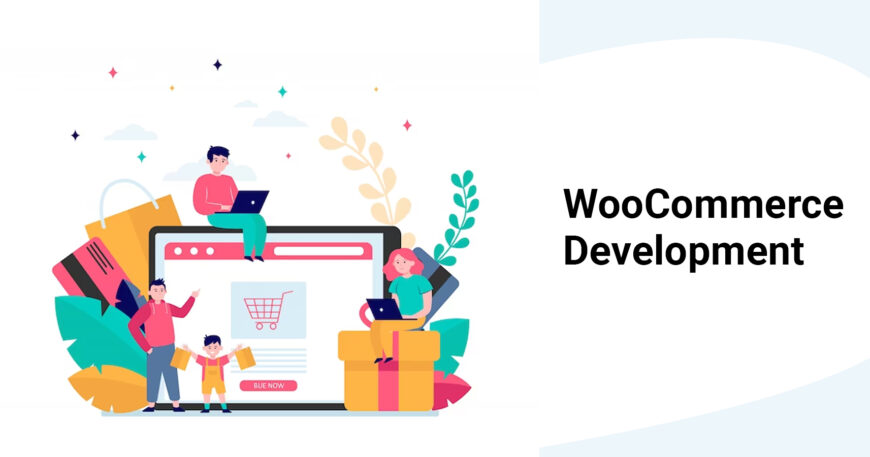Selecting the right ecommerce platform is vital for the success of an online business. It impacts functionality, customization options, and overall user experience. Shopify holds the position as the top global ecommerce platform, renowned for its comprehensive features and user-friendly interface. WooCommerce development is a rapidly growing open-source plugin designed for WordPress, offering extensive customization capabilities and flexibility.
Let’s dig deep into the comparison of Shopify and WooCommerce development. In this comprehensive blog, let’s learn about their usability and maintenance, add-ons and extensions, support, and resources.
Comparison of Shopify and WooCommerce Development
1. Global Position and Growth Statistics:
According to Builtwith.com, Shopify is the top ecommerce platform globally. It has established a strong presence and reputation in the industry.
On the other hand, WooCommerce development is experiencing rapid growth and gaining popularity among businesses, making it one of the fastest-growing ecommerce solutions.
2. Platform Features and Customization Options:
Shopify offers an all-in-one, cloud-based platform that simplifies user website management. It provides a comprehensive set of built-in features and themes, making it easy for beginners to set up and manage their online stores.
In contrast, WooCommerce development is an open-source plugin designed for WordPress. It offers extensive customization options, allowing users to tailor their online stores to their needs. The open-source nature of WooCommerce development provides greater flexibility for developers and advanced users to customize every aspect of their stores.
3. Pricing Structure and Additional Expenses:
Shopify operates on a set pricing structure with different plans. The basic plan starts at $29/month, which includes essential features for creating a new business. Shopify also offers upgraded plans with advanced features for scaling and growing businesses, priced at $79/month and $299/month.
In comparison, WooCommerce development is free as it is an open-source plugin. However, users must consider additional expenses such as purchasing a domain name, SSL certificate, WordPress hosting, and potentially paid extensions or plugins to add desired functionalities to their WooCommerce development store.
4. Transaction Fees For Payments:
Shopify charges transaction fees for payments processed through its payment solution, Shopify Payments. The transaction fees vary based on the chosen pricing plan. Additionally, if users prefer a third-party payment gateway, an additional flat fee of 2% per transaction applies.
As for WooCommerce development, it does not impose transaction fees. However, users are subject to transaction fees charged by payment gateways or banks they choose to integrate with their WooCommerce development store. It allows users to select payment options that suit their preferences and negotiate prices directly with the payment gateway providers.
Usability and Maintenance
1. Shopify’s Intuitive Setup and Ease Of Use:
Shopify is known for its user-friendly interface and intuitive setup process. Users can quickly create an account, log in, and build their online store. With a wide range of pre-designed themes and templates, beginners can easily customize the look and feel of their store without requiring extensive technical knowledge.
As an all-in-one platform, Shopify handles hosting, security, performance, backups, and compatibility, relieving users of the technical aspects of managing a website. This simple and user-friendly approach makes Shopify popular for beginners or those who prefer a streamlined setup process.
2. Woocommerce’s Hands-On Setup and Customization Possibilities:
WooCommerce, an open-source WordPress plugin, provides extensive customization possibilities for users. While this allows for greater flexibility and control over the design and functionality of the online store, it also requires a more hands-on approach and technical knowledge.
Setting up a WooCommerce development store involves installing the WordPress platform, configuring plugins, and customizing themes to create a unique storefront. WooCommerce’s customization options extend to every aspect of the site, enabling businesses to create a tailored shopping experience. This level of customization appeals to established companies or users with specific design and functionality requirements.
3. Maintenance and Management Requirements For Each Platform:
The platform performs maintenance and management tasks with Shopify, including updates, security, backups, and performance optimization. Users can focus on running their businesses without worrying about technical maintenance.
On the other hand, WooCommerce development is a self-hosted solution that requires users to handle maintenance tasks themselves. It involves regularly updating WordPress and WooCommerce development and installing plugins to ensure compatibility, security, and performance.
Additionally, users are responsible for implementing security measures, backing up their websites, and monitoring their overall functionality. While WooCommerce development offers various free and paid plugins to automate some tasks, users should be prepared to dedicate time and effort to maintaining and managing their WooCommerce development store.
Add-ons and Extensions
1. Shopify’s App Store And Range of Available Apps:
Shopify provides users access to a robust app store offering various apps and integrations. With hundreds of options, users can easily find and install apps that enhance their store’s functionality. These apps cover multiple areas: marketing, analytics, inventory management, customer support, and more. Users can choose from free and paid apps to customize their store according to their specific needs and scale their business efficiently.
2. Woocommerce’s Extensive Library of Free WordPress Plugins:
WooCommerce development benefits from the comprehensive WordPress plugin ecosystem as an open-source plugin for WordPress. Users can access a vast library of over 50,000 free plugins built explicitly for WordPress sites. These plugins cater to various aspects of ecommerce, including SEO optimization, performance enhancements, payment gateways, shipping options, and much more.
The availability of free plugins empowers users to add desired functionalities to their WooCommerce development store without incurring additional costs. Furthermore, businesses can leverage the flexibility of WooCommerce development to develop custom add-ons or extensions tailored to their unique requirements, offering limitless customization possibilities.
Support and Resources
Shopify’s Comprehensive Support Channels And Helpful Guides:
Shopify places a strong emphasis on providing excellent customer support. Users can access multiple support channels, including phone support, live chat, and email. It ensures that users can reach out for assistance whenever they encounter issues or have questions. In addition to direct support, Shopify offers a comprehensive library of helpful guides and tutorials. These resources cover various topics, from store setup and customization to marketing strategies.
The platform also features a community forum where users can seek advice, share experiences, and learn from others. Furthermore, Shopify provides a setup wizard that guides users through the initial store setup process, making it easier for beginners to get started.
Woocommerce’s Diy Approach And Available Support Resources:
WooCommerce development adopts a more do-it-yourself (DIY) approach to support. Help resources are available in the form of documentation and forums related to WordPress and WooCommerce development. Users can access extensive documentation that covers various aspects of setting up and managing a WooCommerce development store.
Additionally, the WooCommerce development community is a valuable resource where users can engage with other WooCommerce development users, share insights, and seek guidance. It’s important to note that WooCommerce’s support is generally more suitable for users with specific technical knowledge and who prefer a self-guided approach to troubleshooting and resolving issues.
Conclusion
By carefully evaluating your store’s needs, you can choose between Shopify and WooCommerce development based on the level of customization, technical proficiency, scalability, and budget considerations. Shopify is well-suited for beginners and growing businesses, while WooCommerce development caters to established companies seeking customization options.
Establish a dynamic ecommerce store with the Vserve WooCommerce store development service. You will always have opportunities to improve your online presence with Vserve WooCommerce development website plugins and extensions.
This Blog is inspired by the video “Shopify VS WooCommerce (WordPress) – Which is better?” by “IWD Agency.”





